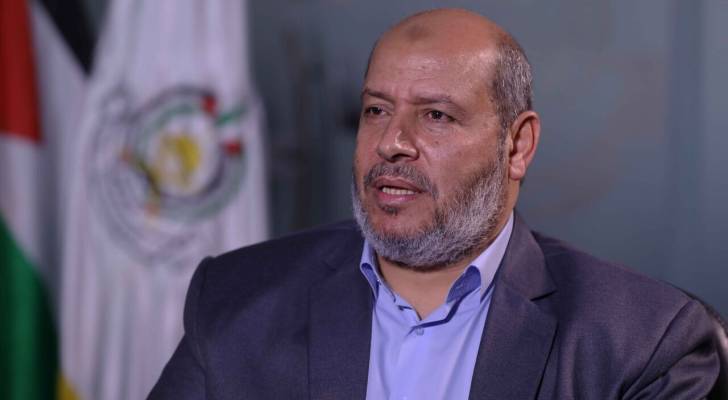From awareness to resilience - By Hamza Alakalik, The Jordan Times
Even a wise man’s mistake can cost dearly, especially in a digital world that moves fast and shows no mercy for small errors. From this reality emerged the national campaign Even a Wise Man’s Mistake, launched by the Central Bank of Jordan to serve as a shield of awareness protecting financial consumers from serious cyber threats. With the rapid spread of digital wallets, online banking, and artificial intelligence, cyberattacks are no longer distant headlines but real dangers knocking on the doors of individuals, households, and institutions. The campaign’s message is clear: awareness is not a choice—it is our first weapon for building trust and safeguarding a secure financial future.
Cybersecurity governance and support for financial technology (FinTech) highlight an understanding that digital transformation is more than a technical shift—it is a lever for economic growth and financial inclusion. Jordan’s progress in the Global Cybersecurity Index, moving from rank 71 to 27, reflects this vision and the determination of leadership. As Central Bank Governor Adel Sharkas emphasized, the campaign is not a passing initiative but a long-term commitment. Today, consumer awareness itself has become a regulatory tool as important as sophisticated technology.
Launched in October during Global Cybersecurity Awareness Month, the campaign aligns with international efforts. Its activities focus on empowering people to detect fraudulent messages and links while stressing a golden rule: banks and financial institutions never request sensitive information by phone or email. Through this principle, the campaign built a foundation for protecting consumers from common fraud attempts.
Crucially, the campaign turned citizens into ambassadors of awareness, sharing knowledge with their families and communities. This created a chain of protection that functions like a national firewall against intrusions. The National Cybersecurity Center further supports this vision through initiatives such as the Online Safe platform and the Digital Glimpse campaign, reflecting a unified national strategy that extends beyond the financial sector.
At its core, the campaign addressed the most prevalent and dangerous types of cyber fraud. Fake online stores lure victims with cheap deals, fraudulent lottery messages promise false winnings, malicious apps and ATMs harvest personal data, and identity theft thrives on social media. These crimes threaten not only money but also personal data rights. This is where law and awareness come together, building a defense network with the consumer at its center.
Regional data reveals the urgency. In 2024, cyberattacks on financial services in the Middle East and North Africa rose by 278 per cent, making the sector the most targeted in the region. Beyond financial theft, attackers seek to disrupt operations, damage reputations, and cause large economic losses. To counter this, the Financial Sector Cybersecurity Incident Response Unit (Jo-FinCERT) was created as a first line of defense. While this initiative positions Jordan alongside advanced nations, the next challenge is building a trusted intelligence-sharing platform among banks. This would transform Jo-FinCERT from a response unit into a proactive culture of real-time collaboration, enabling prevention before attacks occur.
Internationally, the Central Bank of Jordan’s message not to disclose sensitive data aligns with global best practices. In the United States, for example, individuals are urged to follow four simple but powerful steps: use strong passwords, enable multi-factor authentication, report fraud attempts quickly, and keep software updated. These small steps make a big difference. Jordan’s campaign shows that true protection comes not only from advanced systems but also from human awareness—because one mistake can open the door to major loss.
This campaign is also part of a wider strategic vision. Under the governor’s leadership, the Central Bank is promoting FinTech as a driver of investment and innovation. The 2025 FinTech Festival, held with the Arab Monetary Fund, brought together global experts and central bankers to discuss the future of digital finance. Platforms like JoRegBox further strengthen Jordan’s role, allowing future-ready regulations to be tested before implementation. This shifts regulation from reactive to proactive, ensuring it keeps pace with rapid innovation.
In conclusion, Jordan has succeeded in balancing innovation with security, supported by the Central Bank and the National Cybersecurity Center. Strong foundations have been built, from laws and regulatory platforms to nationwide awareness campaigns, ensuring sustainable trust. Yet challenges remain—from destructive DDoS attacks to the need for stricter data governance. The future will depend not only on technological progress but also on the strength of security systems and readiness to face evolving threats. In this context, the national campaign Even a Wise Man’s Mistake is a landmark, proving that Jordan is not just joining the race for digital transformation but is determined to lead it regionally with confidence and vision.
Latest News
-
 Nobel Peace Prize snubs Trump, honors Venezuelan opposition leader
Nobel Peace Prize snubs Trump, honors Venezuelan opposition leader
-
 "We ended the war in Gaza," says Donald Trump
"We ended the war in Gaza," says Donald Trump
-
 Witkoff, Kushner join cabinet meeting on Gaza deal after meeting with Netanyahu
Witkoff, Kushner join cabinet meeting on Gaza deal after meeting with Netanyahu
-
 “Gaza prisoner exchange to release 1,950 Palestinians, including 250 lifers”: al-Hayya
“Gaza prisoner exchange to release 1,950 Palestinians, including 250 lifers”: al-Hayya
-
 Crown Prince meets with France President
Crown Prince meets with France President